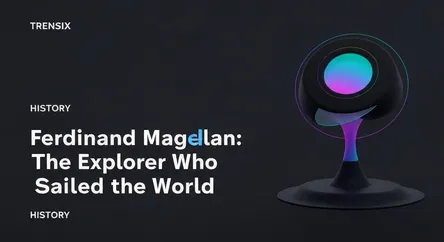History
Ferdinand Magellan: The Explorer Who Sailed the World

Discover Ferdinand Magellan, the Portuguese explorer whose historic 1519 Spanish expedition led to the first circumnavigation of the Earth.
What is it?
Ferdinand Magellan was a Portuguese explorer who organized the Spanish expedition to the East Indies from 1519 to 1522. This voyage resulted in the first circumnavigation of the Earth, although Magellan himself did not complete the entire journey. Born into Portuguese nobility around 1480, he was a skilled sailor and naval officer. After falling out of favor with the Portuguese king, Magellan secured funding from King Charles I of Spain for an expedition to find a westward route to the "Spice Islands" (the Moluccas). The fleet of five ships sailed from Spain, navigated around South America through the strait that now bears his name, and became the first Europeans to cross the Pacific Ocean.
Why is it trending?
Magellan remains a key figure in history due to the monumental impact of his expedition. The voyage was a landmark achievement in maritime history, proving conclusively that the Earth was round and much larger than previously imagined by Europeans. His journey opened up new global trade routes and dramatically expanded European understanding of world geography. The expedition's success in finding a westward passage to Asia shifted the balance of power, intensifying the rivalry between Spain and Portugal and fueling further European exploration and colonization. Magellan's story of determination against storms, mutinies, and the unknown continues to capture the imagination.
How does it affect people?
The Magellan-Elcano expedition fundamentally changed the world. It initiated the first wave of globalization by connecting previously isolated parts of the globe. The discovery of new routes revolutionized global trade and commerce, allowing European nations to access valuable commodities like spices directly, which had profound economic consequences. The voyage led to the first European contact with various peoples and lands, including the Philippines, where Magellan was killed in 1521. This contact paved the way for centuries of Spanish colonization. The expedition's data also led to significant advancements in cartography and navigation.